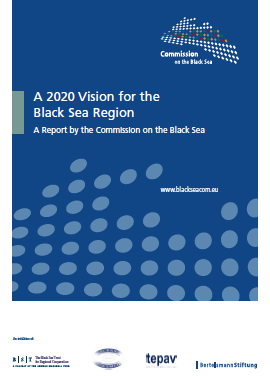
The Black Sea region is coming into its own - but it is a contested and sometimes dangerous neighbourhood. It has undergone countless political transformations over time. And now, once again, it is becoming the subject of an intense debate. This reflects the changing dynamics of the Black Sea countries and the complex realities of their politics and conflicts, economies and societies. Geography, the interests of others and the region’s relations with the rest of the world in large part explain its resurgence. Straddling Europe and Asia, the Black Sea links north to south and east to west. Oil, gas, transport and trade routes are all crucial in explaining its increasing relevance.
In the last two decades the Black Sea has changed beyond recognition. We have witnessed the transformation of the former communist societies and the impact of globalisation. We have seen a heightened US interest since 9/11, the enlargement of NATO and the EU along its shores and repeated Russian-Ukrainian crises over gas. We have also witnessed the August 2008 war between Russia and Georgia followed by its fallout, discussions over the fate of the Russian Black Sea fleet in Sebastopol, the impact of the Nagorno-Karabakh conflict on the Armenian-Turkish rapprochement, developments regarding the conflict in Transnistria, the changing nature of Russo-Turkish relations and finally, the evolving global economic and political landscape as a result of the current world financial crisis. All of these are deeply affecting the region’s stability and in turn, impact global politics.
